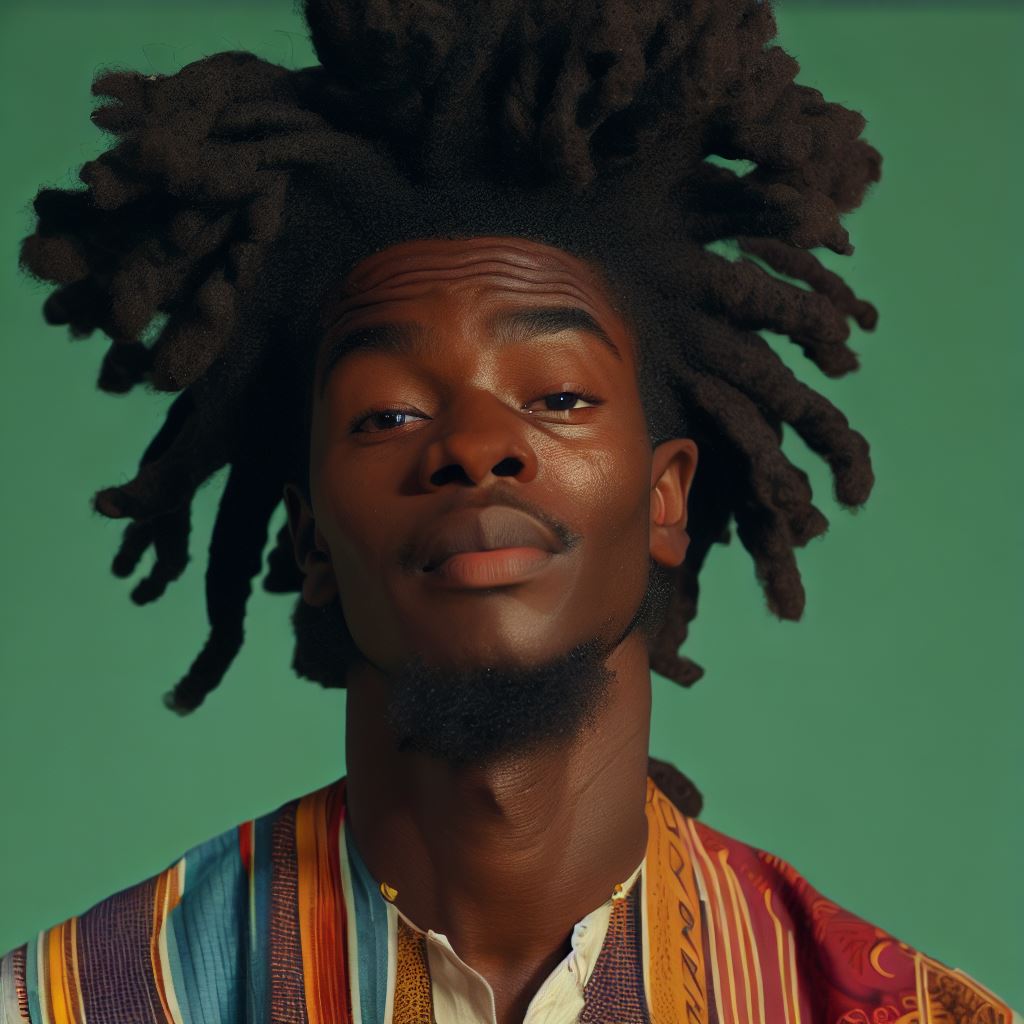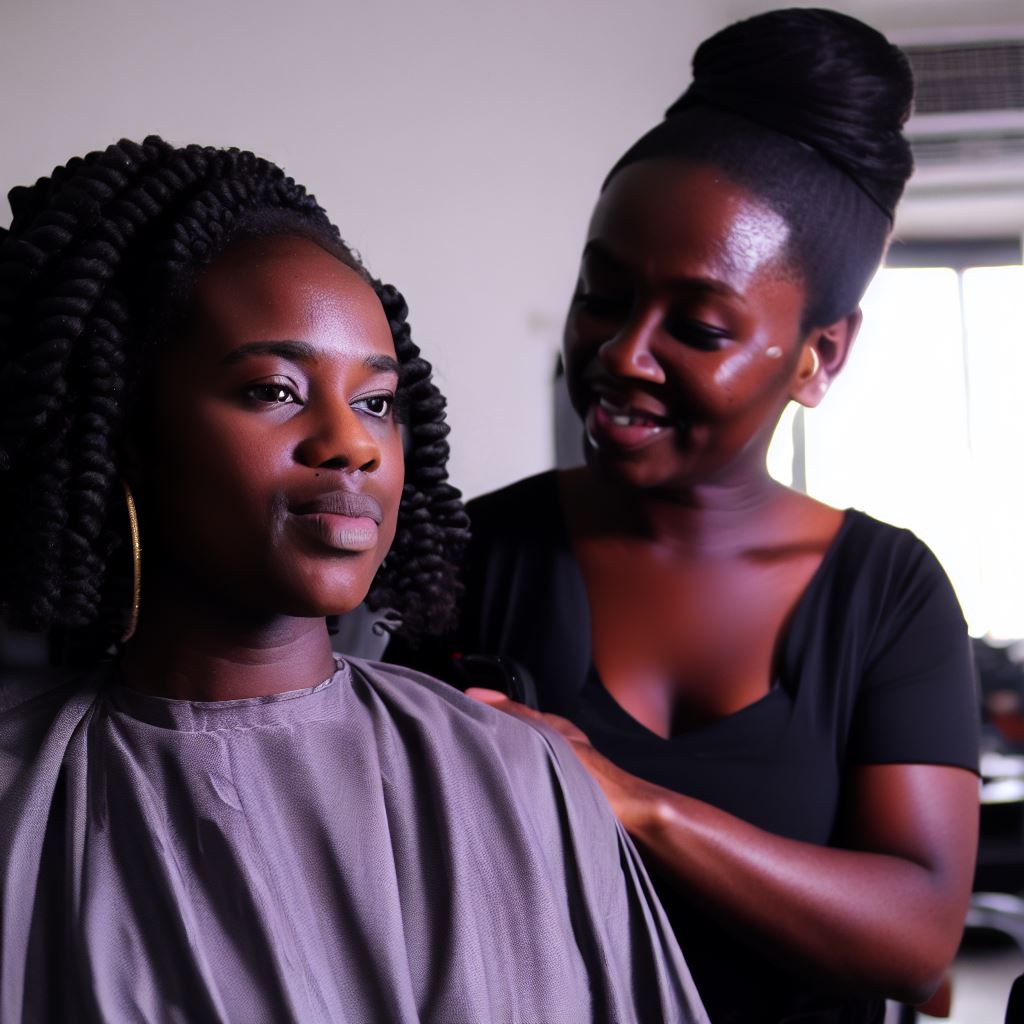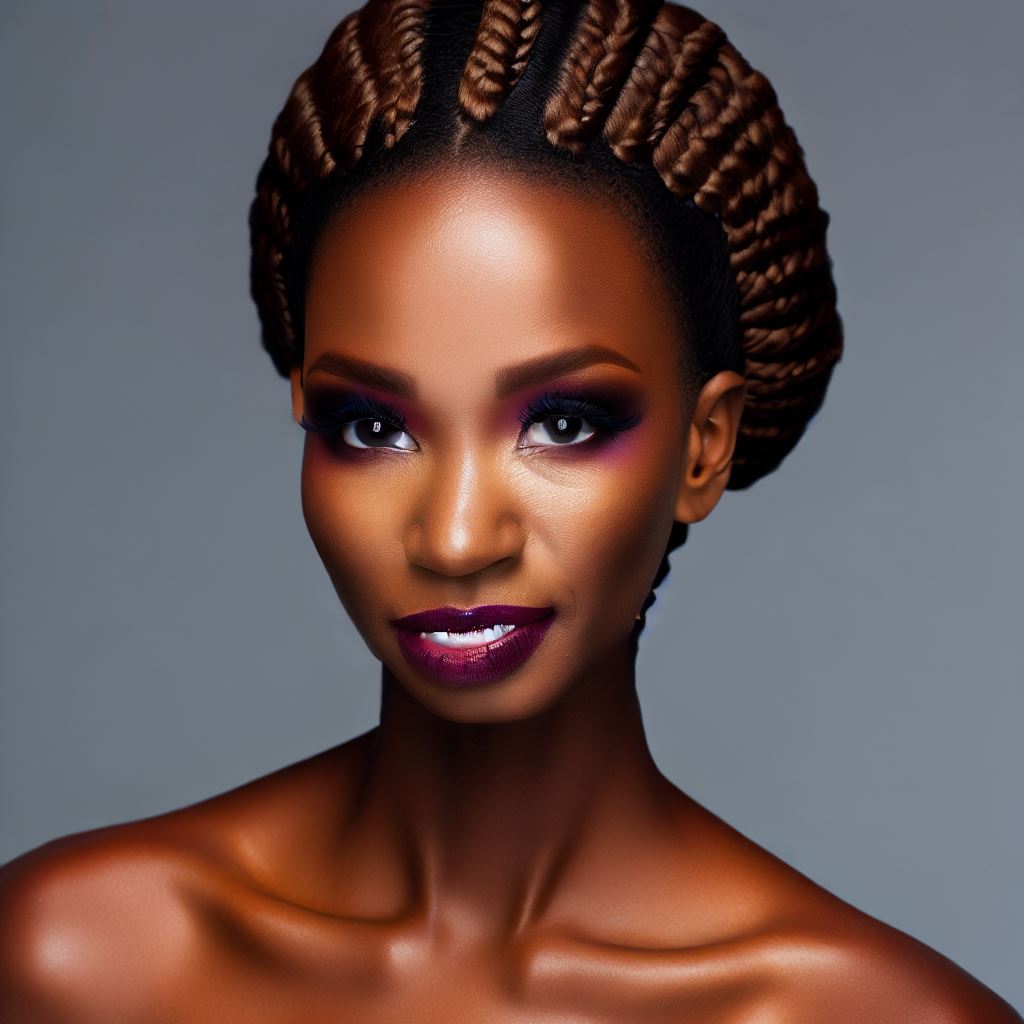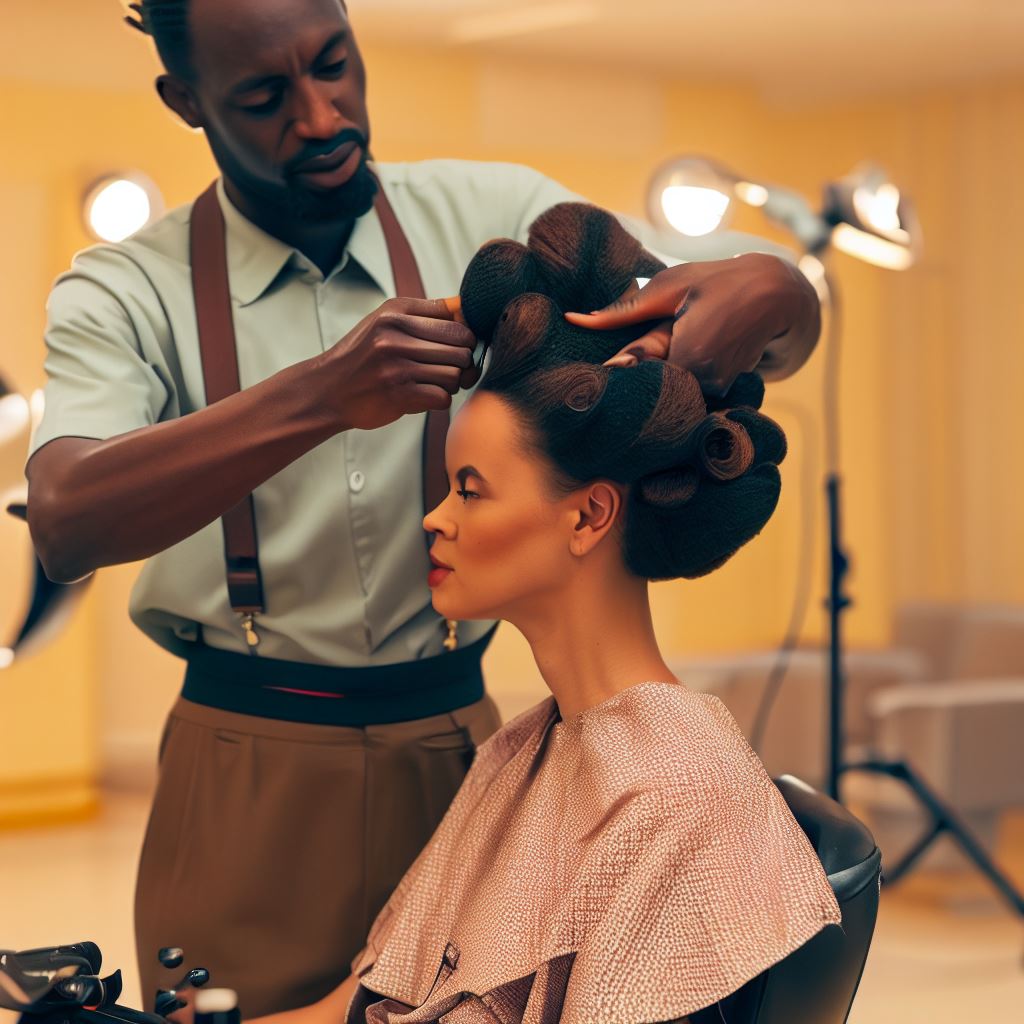Introduction
Let’s explore the art of hair styling in Nigeria’s vibrant film industry.
Nigeria’s film industry, also known as Nollywood, has experienced tremendous growth in recent years.
With an influx of skilled filmmakers and actors, Nollywood has become the second largest film industry globally.
Hairstyles in Nigerian films are not just for aesthetic purposes; they hold immense cultural significance.
Each hairstyle portrays a specific cultural identity, reflecting the rich diversity of Nigeria’s ethnic groups.
The different hairstyles also serve as a means of showcasing the characters’ personalities and social status.
In Nigeria’s vibrant film industry, hair styling is considered an art form.
Hairstylists collaborate closely with directors and costume designers to create unique looks that enhance character development and storytelling.
They carefully select hairstyles that match the characters’ backgrounds, age, and social status, adding depth and realism to the narratives.
Moreover, hair styling in Nigerian films often incorporates traditional techniques and cultural symbolism.
Traditional braiding, weaving, and intricate patterns are used to create elaborate hairstyles.
These hairstyles not only serve as a form of self-expression but also contribute to the overall visual appeal of the film.
In short, the art of hair styling in Nigeria’s vibrant film industry is a crucial element in portraying cultural identities and character development.
Hairstyles in Nigerian films hold immense significance and are carefully crafted to enhance the storytelling process.
Through unique hairstyles, filmmakers showcase the beauty, diversity, and cultural heritage of Nigeria.
Historical Perspective of Nigerian Hair Styling
Historical background of traditional Nigerian hairstyles
- Nigerian traditional hairstyles have a rich history that dates back centuries.
- These hairstyles were not only a form of self-expression but also had cultural significance.
- Traditional Nigerian hairstyles varied across different ethnic groups, showcasing the diversity of the country.
- Hairstyles often indicated one’s marital status, age, social status, and even their tribe.
- For example, the Fulani people were known for their intricate braided hairstyles, such as the “Fulani braids” or “Fulani knots.”
- In the Hausa culture, women wore elaborate headscarves and adorned their hair with beads and ornaments.
- The Yoruba people, on the other hand, favored unique hairstyles that featured patterns and geometric shapes.
Influence of cultural diversity on hair styling in Nigeria
- Nigeria’s cultural diversity has greatly influenced the art of hair styling in the country.
- The different ethnic groups have brought their unique styles, techniques, and hair care practices.
- This diversity has led to a fusion of different hair styling traditions, resulting in innovative and creative hairstyles.
- Nigerian hair stylists have mastered the art of blending traditional and contemporary techniques.
- Styles like cornrows, twists, and braids have become popular across all ethnic groups.
- Hair salons across Nigeria offer a wide range of services, catering to different hair textures and preferences.
- Nigerians take pride in expressing their cultural heritage through their hairstyles, promoting unity and celebrating diversity.
Adoption of Western hairstyles in the Nigerian film industry
- The Nigerian film industry, also known as Nollywood, has embraced Western hairstyles in recent years.
- This adoption of Western hairstyles is influenced by globalization and the need to appeal to a wider international audience.
- Actors and actresses in Nigerian films often sport trendy hairstyles like weaves, extensions, and wigs.
- Western hairstyles are seen as a symbol of modernity and sophistication in the Nigerian film industry.
- This trend has also influenced popular culture, with many Nigerians replicating these hairstyles in their daily lives.
- However, traditional Nigerian hairstyles still hold a special place in the hearts of many Nigerians.
- Some filmmakers incorporate traditional hairstyles in their movies to preserve cultural heritage and showcase the beauty of Nigerian traditions.
In fact, the art of hair styling in Nigeria is deeply rooted in its historical and cultural heritage.
Traditional Nigerian hairstyles symbolize the country’s rich diversity and have evolved into a fusion of traditional and contemporary techniques.
The Nigerian film industry’s adoption of Western hairstyles reflects the influence of globalization and the desire to appeal to a wider audience.
Nevertheless, traditional Nigerian hairstyles continue to be celebrated, preserving cultural heritage and promoting unity.
Read: Case Study: The Evolution of Hair Styling in Nollywood
The Role of Hair Styling in Nollywood Films
In Nigeria’s vibrant film industry, known as Nollywood, the art of hair styling serves a crucial role in enhancing the overall storytelling experience.
The hairstyles chosen for characters can convey important messages about their traits, personalities, social status, and cultural identities.
Conveying character traits through hairstyles
1. Symbolism and visual cues
Hairstyles in Nollywood films are not merely for aesthetic purposes, but they are also used as symbols and visual cues to provide deeper insights into characters’ personalities.
Just like in any other form of art, hair can serve as a powerful tool for conveying specific traits.
For example, a character with a neatly slicked-back bun might be seen as disciplined and organized, while someone with wild, untamed curls could be perceived as rebellious and free-spirited.
2. Significance of hairstyles in character development
Hairstyles play a significant role in character development within Nollywood films.
They can transform a character’s appearance and help the audience understand their journey and growth throughout the storyline.
For instance, a character starting with a plain ponytail may later transition to a more glamorous hairstyle as they evolve into a confident and successful individual.
Depicting social status and cultural identities
1. Differentiating between classes and professions
Hairstyles in Nollywood films also serve as effective tools to differentiate between various social classes and professions.
For example, characters portraying wealthy individuals or high-ranking professionals might be seen with elaborate hairstyles that signify their elevated status.
On the other hand, characters from lower social classes or certain professions might sport simpler, less extravagant hairstyles.
2. Reflecting ethnic backgrounds and regional differences
Nigeria is a culturally diverse country, and Nollywood films aim to represent this diversity authentically.
Hairstyles are employed to reflect the ethnic backgrounds and regional differences of the characters.
Different tribes and regions in Nigeria have their unique hairstyles, and incorporating these hairstyles into films helps in creating accurate portrayals and engaging storytelling experiences, which resonate with the audience.
In essence, the art of hair styling in Nigeria’s vibrant film industry, Nollywood, is not merely focused on aesthetic appeal but serves several essential purposes.
Hairstyles are chosen carefully to convey character traits, provide visual cues, and develop characters throughout the storyline.
Additionally, these styling choices help to depict social status, differentiate between classes and professions, and authentically represent Nigeria’s diverse cultural identities.
The intricate and thoughtful use of hair styling in Nollywood films enhances the overall cinematic experience, adding depth and authenticity to the storytelling.
Read: Celebrity Hair: Spotlight on Nigerian Film Hair Stylists
Hair Styling Techniques and Trends in Nollywood
Popular hairstyling techniques used in Nigerian films
- Traditional braiding and weaving.
- Modern wig and extension styles.
Influence of Western hairstyling trends on Nollywood
- The use of vibrant colors and bold hairstyles.
- Blending Nigerian and foreign hair styling techniques.
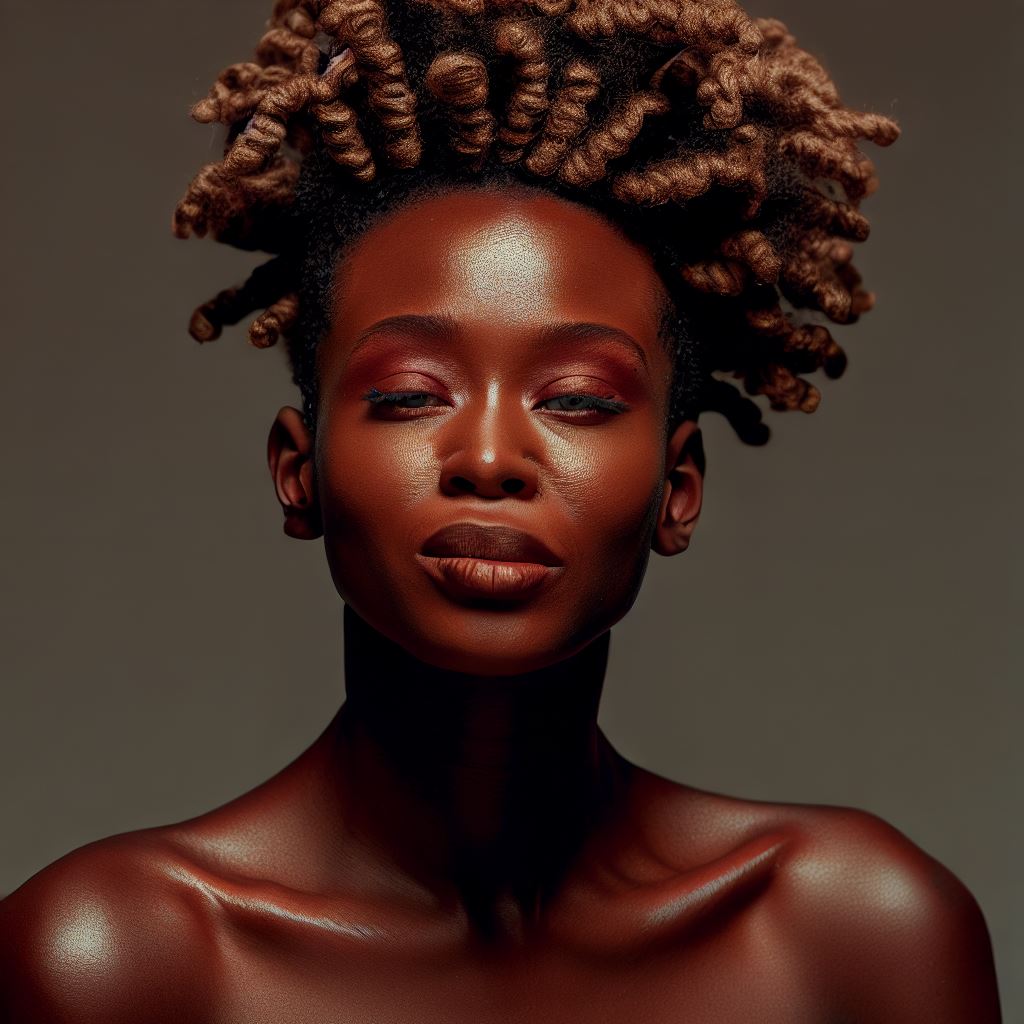
Celebrating Nigerian Hairstylists in the Film Industry
Recognizing renowned Nigerian hairstylists
Nigeria’s film industry, popularly known as Nollywood, is home to incredibly talented hairstylists who deserve recognition.
These hairstylists have not only mastered their craft but also played a significant role in shaping the characters we see on screen.
Their impeccable skills have left audiences in awe and contributed to the overall success of Nigerian films.
Their impact on transforming characters and storytelling through hair
One cannot underestimate the impact of hairstylists in transforming characters and enhancing storytelling through hair.
Hairstyles often speak volumes about a character’s personality, their background, and the era in which the story is set.
Renowned Nigerian hairstylists have the ability to capture the essence of a character and bring them to life through their incredible hairstyling techniques.
From intricate braids to unique haircuts, these hairstylists add depth and dimension to characters, making them more relatable and believable.
They work closely with directors and costume designers to ensure that the hairstyles align with the overall vision of the film.
Interview excerpts from talented hairstylists in Nollywood
To shed light on the remarkable work done by Nigerian hairstylists in the film industry, we reached out to some industry professionals for their insights.
Sandra Okereke, a renowned hairstylist, shared her thoughts on the importance of hairstyling in storytelling:
“Hairstyling is like painting on a canvas. It helps create an identity for each character and enhances their presence on screen.”
Another talented hairstylist, Chinedu Onyia, emphasized the role of hairstyling in character development:
“I believe that a character’s hairstyle directly influences their behavior. Certain hairstyles bring out confidence, while others reveal vulnerability.”
Dorothy Adebanjo, an expert in period hairstyles, discussed the challenges of recreating hairstyles from different eras:
“Research is key when it comes to recreating past hairstyles. It requires a deep understanding of historical hairstyles and attention to detail.”
These insights from Nigerian hairstylists highlight their dedication, creativity, and passion for their craft.
Their expertise goes beyond hairstyling; they are storytellers who contribute to the overall narrative of a film.
In brief, Nigerian hairstylists in the film industry deserve to be celebrated for their exceptional skills and contributions.
They bring characters to life, enhance storytelling, and add authenticity to Nigerian films.
Their impact on the industry cannot be understated, and their artistry continues to captivate audiences worldwide.
Read: Innovative Hair Techniques in Nigeria’s Film Industry
Gain More Insights: Successful Music Directors: Nigeria’s Top Talents
Explore Further: Role of Women in Nigeria’s Circus Performance Scene
Challenges and Controversies in Hair Styling
Cultural appropriation and misrepresentation
The Nigerian film industry faces challenges when it comes to cultural appropriation in hair styling.
Historically, there have been instances where hairstyles from different Nigerian cultures were misused or misrepresented in films.
This cultural appropriation can lead to the erasure of the cultural significance and meaning behind these hairstyles.
Hair styling in Nigerian films should be respectful and responsibly representing the cultural heritage it draws inspiration from.
It is essential for filmmakers and hairstylists to collaborate with cultural experts to ensure accurate representation and honor the origins of these hairstyles.
Balancing creativity with authenticity
Another challenge in hair styling in Nigeria’s film industry is finding the balance between creativity and authenticity.
Hairstylists often want to create unique and visually striking hairstyles for characters.
However, they must also consider the authenticity of the character’s background and the relevance of the hairstyle to the story being told.
Striking a balance between creative expression and maintaining cultural integrity is crucial in hair styling for films.
Hairstylists need to be aware of the historical and cultural context of the characters they are styling for.
The need for diversity and inclusivity in hairstyling representation
One of the controversies surrounding hair styling in Nigeria’s film industry is the lack of diversity and inclusivity.
Some hairstyles favored, others ignored for too long.
This lack of diversity can perpetuate stereotypes and limit representation for different cultures and hair types.
It is important to showcase a wide range of hairstyles that represent the diverse population of Nigeria and celebrate different cultural backgrounds.
By embracing inclusivity, the film industry can contribute to a more accurate and diverse representation of Nigerian society.
Read: Exploring Nigeria’s Film Industry through Hair Styling
Conclusion
Throughout this blog section, we have explored the significant role hair styling plays in Nigeria’s vibrant film industry, Nollywood.
We have witnessed the immense talent and skill of Nigerian hairstylists who bring characters to life through their intricate and innovative hair designs.
As the Nigerian film industry continues to flourish, we can anticipate even more stunning and groundbreaking hair styling techniques that will further elevate the storytelling experience in Nollywood films.
In summary, hair styling in Nigeria’s film industry is not merely a technical aspect but an art form that enhances the overall aesthetics and narrative.
Nigerian hairstylists are pioneers in their craft and have become an integral part of Nollywood’s success.
Their dedication and creativity deserve recognition and appreciation.
As the industry evolves, we eagerly anticipate witnessing the future advancements and achievements in hair styling in Nollywood films.

